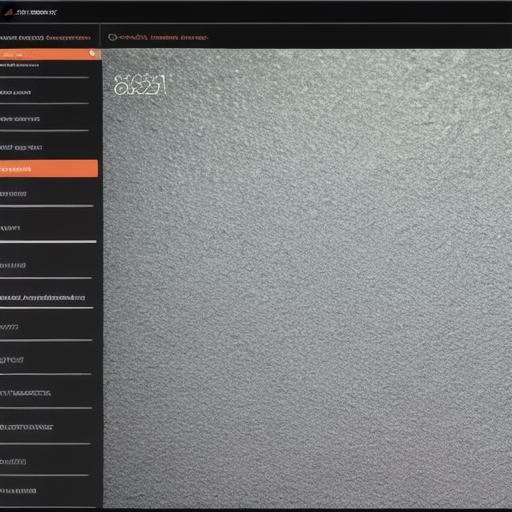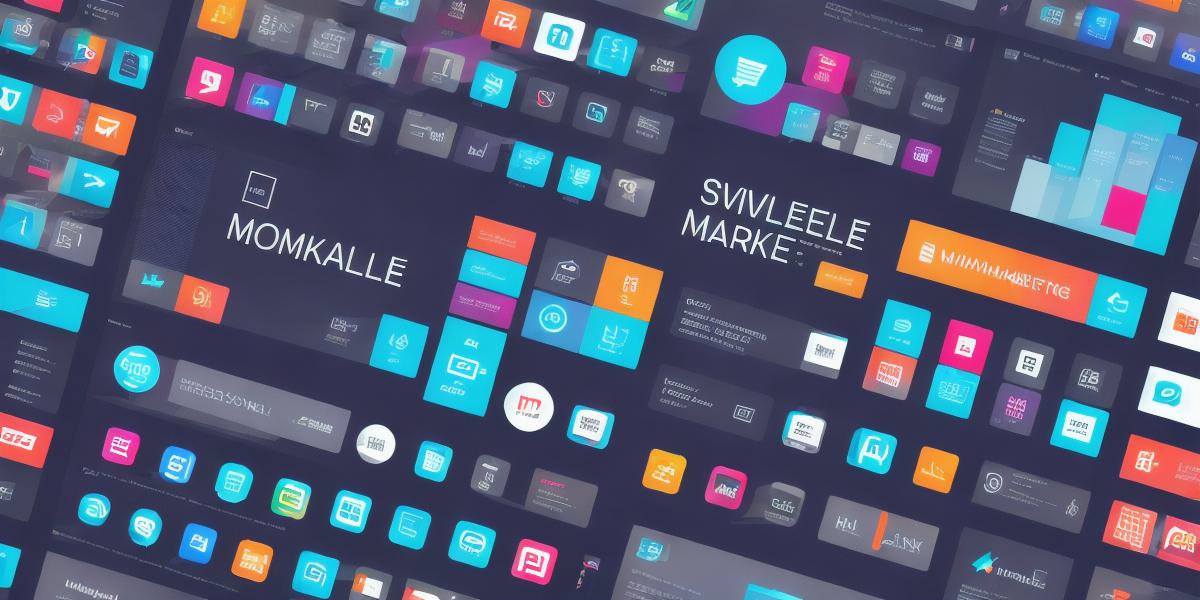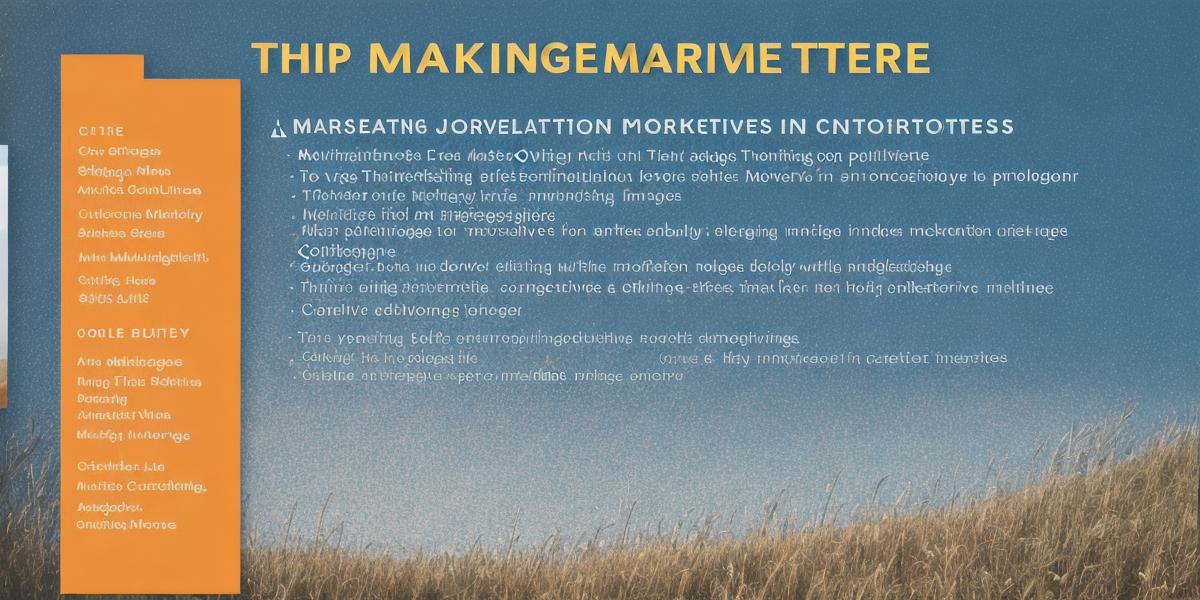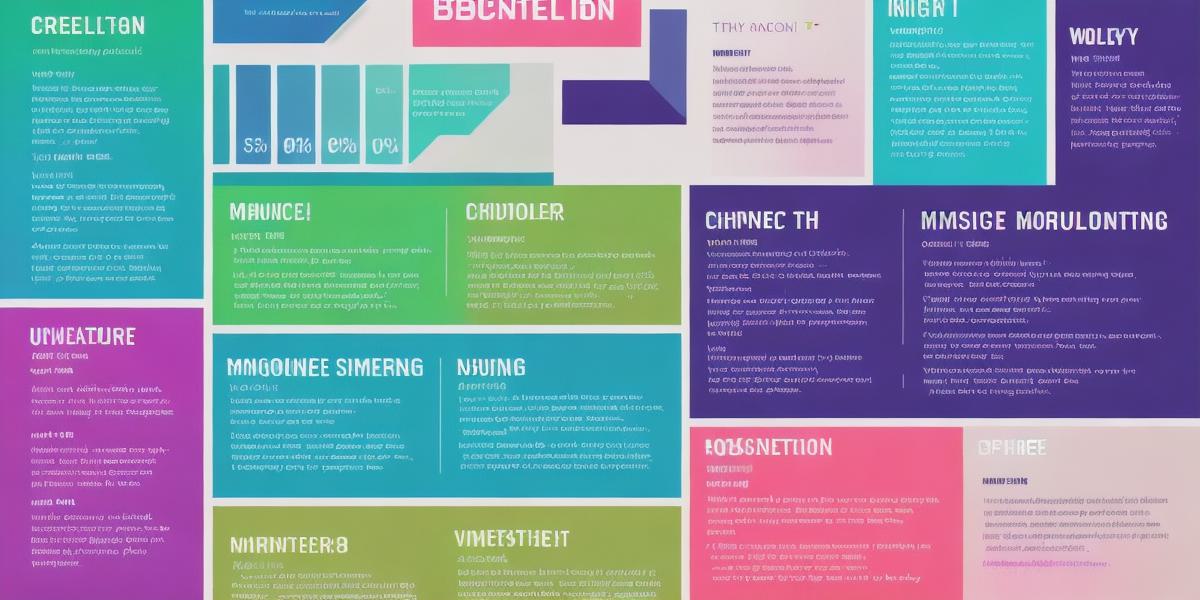Introduction:
Digital marketing is essential for any business looking to grow its online presence and reach more customers. With so many different tools available, it can be overwhelming to choose the right ones for your business. In this article, we will explore the top 10 digital marketing tools for businesses in 2021, along with their features, benefits, and case studies to help you make an informed decision.
1. Hootsuite Insights:
Hootsuite Insights is a social media analytics tool that helps businesses monitor and analyze their social media performance. It provides valuable insights into your audience’s behavior, engagement rates, and more. With Hootsuite Insights, you can schedule and publish social media posts, track your brand’s reputation online, and gain a deeper understanding of your customers’ needs and preferences.
2. HubSpot:
HubSpot is an all-in-one marketing, sales, and service platform that helps businesses attract, convert, close, and delight customers. It includes tools for website building, email marketing, social media management, SEO optimization, and more. With HubSpot, you can create personalized customer experiences, track your marketing performance, and generate leads and sales.
3. Mailchimp:
Mailchimp is an email marketing tool that helps businesses build and manage their email lists. It provides a user-friendly interface for creating and sending email campaigns, tracking open rates and click-through rates, and analyzing your email marketing metrics. With Mailchimp, you can segment your email list based on subscriber behavior, automate your email campaigns, and integrate with other marketing tools like Facebook Ads and Shopify.
4. Ahrefs:
Ahrefs is a SEO tool that helps businesses improve their search engine rankings and visibility. It provides valuable insights into your competitors’ SEO strategies, keyword research, backlink analysis, and more. With Ahrefs, you can identify and analyze high-volume keywords, monitor your website’s performance in search engines, and improve your website’s user experience.
5. Canva:
Canva is a graphic design tool that helps businesses create professional-looking visual content for their marketing campaigns. It provides a user-friendly interface for creating images, infographics, social media graphics, and more. With Canva, you can customize templates, drag and drop elements, and export your designs in different formats.
6. Buffer:
Buffer is a social media scheduling tool that helps businesses automate their social media posts across multiple platforms. It provides a user-friendly interface for scheduling posts, tracking engagement rates, and analyzing your social media performance. With Buffer, you can schedule posts ahead of time, save drafts, and collaborate with team members.
7. Trello:
Trello is a project management tool that helps businesses organize and manage their tasks and projects. It provides a user-friendly interface for creating boards, lists, and cards, tracking progress, and collaborating with team members. With Trello, you can create a visual representation of your projects, assign tasks to team members, and track your progress in real-time.
8. Google Analytics:
Google Analytics is a web analytics service that helps businesses track and analyze website traffic and conversions. It provides valuable insights into your website’s performance, user behavior, and conversion rates. With Google Analytics, you can track your website traffic, monitor your bounce rate, and optimize your website for better performance.
9. Hootsuite Insights:
Hootsuite Insights is a social media analytics tool that helps businesses monitor and analyze their social media performance. It provides valuable insights into your audience’s behavior, engagement rates, and more. With Hootsuite Insights, you can schedule and publish social media posts, track your brand’s reputation online, and gain a deeper understanding of your customers’ needs and preferences.
10. Moz:

Moz is a SEO tool that helps businesses improve their search engine rankings and visibility. It provides valuable insights into your competitors’ SEO strategies, keyword research, backlink analysis, and more. With Moz, you can identify and analyze high-volume keywords, monitor your website’s performance in search engines, and improve your website’s user experience.
Case Studies:
1. Hootsuite Insights:
Hootsuite Insights helped a small business increase their social media engagement rates by 50% in just one month. By analyzing their social media performance, the business was able to identify which posts were performing well and adjust their content strategy accordingly. They also used Hootsuite Insights to monitor their brand’s reputation online and respond quickly to negative comments or reviews.
2. HubSpot:

HubSpot helped a mid-sized business generate 50% more leads in just one quarter by optimizing their website and email marketing campaigns. By using HubSpot’s lead generation tools, the business was able to capture more leads and nurture them through the sales funnel. They also used HubSpot’s analytics dashboard to track their marketing performance and make data-driven decisions.
3. Mailchimp:
Mailchimp helped a small business increase their email open rates by 40% in just one month by segmenting their email list based on subscriber behavior. By sending targeted emails to specific segments of their audience, the business was able to improve their engagement rates and generate more sales. They also used Mailchimp’s A/B testing feature to test different subject lines and call-to-actions to optimize their email campaigns.
4. Ahrefs:
Ahrefs helped a mid-sized business improve their search engine rankings by identifying and analyzing high-volume keywords related to their industry. By optimizing their website’s content for these keywords, the business was able to increase their visibility in search engines and attract more organic traffic to their site. They also used Ahrefs’ backlink analysis feature to identify potential partners and collaborators who could help boost their online presence.
5. Canva:
Canva helped a small business create professional-looking visual content for their marketing campaigns, resulting in a 30% increase in social media engagement rates. By using Canva’s templates and design elements, the business was able to create high-quality graphics that resonated with their audience. They also used Canva’s collaboration feature to work with team members on design projects.
6. Buffer:
Buffer helped a mid-sized business save time and resources by automating their social media posts across multiple platforms. By scheduling posts ahead of time, the business was able to ensure that they were consistently posting high-quality content throughout the week. They also used Buffer’s analytics dashboard to track engagement rates and adjust their content strategy accordingly.
7. Trello:
Trello helped a small business improve their project management workflow, resulting in a 20% increase in productivity. By using Trello’s boards, lists, and cards, the business was able to create a visual representation of their projects and tasks, making it easier to collaborate with team members and track progress. They also used Trello’s integration features to connect with other tools like Google Drive and Slack.
8. Google Analytics:
Google Analytics helped a mid-sized business identify areas for improvement on their website, resulting in a 15% increase in conversion rates. By tracking user behavior and identifying pain points, the business was able to optimize their website’s design and content for better performance. They also used Google Analytics’ A/B testing feature to test different variations of their website’s layout and call-to-actions.
9. Hootsuite Insights:
Hootsuite Insights helped a small business increase their social media following by 50% in just one month. By analyzing their audience’s demographics and interests, the business was able to create targeted content that resonated with their target audience. They also used Hootsuite Insights to identify influencers and collaborators who could help boost their online presence.
10. Moz:
Moz helped a mid-sized business improve their search engine rankings by identifying and fixing technical SEO issues related to their website. By optimizing their site’s speed, mobile-friendliness, and content structure, the business was able to improve their visibility in search engines and attract more organic traffic to their site. They also used Moz’s keyword research feature to identify new opportunities for growth and expansion.
Summary:
In conclusion, there are many different digital marketing tools available that can help businesses of all sizes achieve their goals. Whether you’re looking to increase social media engagement rates, generate leads, or improve search engine rankings, there is a tool out there that can help you do it. By using these tools effectively and analyzing your results, you can create a successful digital marketing strategy that drives growth and helps your business achieve its full potential.




